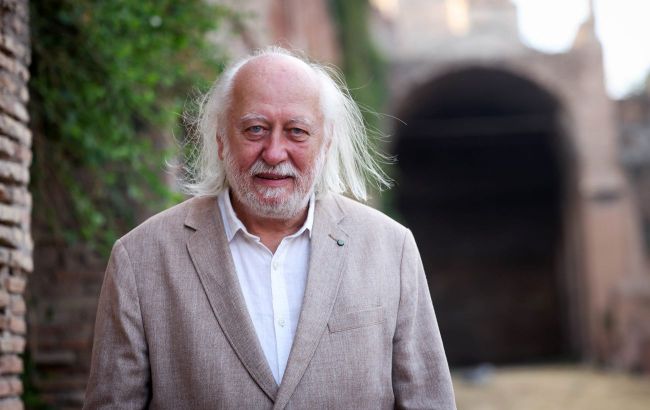2025 Nobel Prize in Literature goes to Hungarian author — Details revealed
 Photo: László Krasznahorkai (Getty Images)
Photo: László Krasznahorkai (Getty Images)
The Swedish Academy in Stockholm has announced the winner of the Nobel Prize in Literature. The award went to Hungarian writer László Krasznahorkai "for his compelling and visionary oeuvre that, in the midst of apocalyptic terror, reaffirms the power of art," according to the Nobel Foundation's press service.
What is known about the literature laureate
László Krasznahorkai was born in 1954 in the small town of Gyula in southeastern Hungary, near the border with Romania. A similarly remote rural landscape became the setting for his first novel, "Sátántangó (Satan's Tango)," published in 1985, which caused a literary sensation in Hungary and marked his breakthrough as an author.
Krasznahorkai's novel "Herscht 07769," which earned him this year's Nobel Prize, is described as a major contemporary German novel for its precise portrayal of social instability in the country.
In "Herscht 07769," for example, the protagonist writes several letters to Angela Merkel about their shared passion for the music of Johann Sebastian Bach. Readers are immersed in a realistic depiction of a small modern town in Thuringia, Germany, plagued by social anarchy, murders, and arson, all set against the grand backdrop of Bach's legacy.
It is a story about violence and beauty, elements that seem "impossibly" intertwined. The 2025 Nobel laureate also turns his gaze eastward, adopting a more contemplative and meticulously refined style. The result is a series of works inspired by his travels in China and Japan.
His 2003 novel "The Mountain from the North, the Lake from the South, the Roads from the West, and the River from the East" tells of the search for a secret garden, a mysterious, lyrically infused tale set southeast of Kyoto.
This work feels like a prelude to his richly layered 2008 collection "Seiobo There Below," which consists of seventeen stories arranged according to the Fibonacci sequence. A literary structure mirrors the mathematical pattern of growth and harmony.
The collection explores the role of beauty and artistic creation in a world of blindness and impermanence. Along with his five-volume epic, it is considered one of Krasznahorkai's defining achievements. It is a masterful depiction of the process through which the reader passes through a series of doors leading to the incomprehensible act of creation.
Who won the prize last year?
Last year's Nobel Prize in Literature went to South Korean author Han Kang, who had previously received the International Booker Prize for her novel "The Vegetarian," which tells the story of a woman's radical refusal to eat meat and the devastating consequences of her decision.
Han Kang received the Nobel "for her intense poetic prose that confronts historical traumas and exposes the fragility of human life."
She became the first South Korean writer and the first female author from Asia to receive the Nobel Prize in Literature.
According to Alfred Nobel's will, the literature prize should go to an author who has produced the most outstanding work in an idealistic spirit. Initially, only works written in the year preceding the award were considered, but the rule was later changed. Now, works whose significance has only recently become evident can also be recognized.
Interestingly, the prize is usually awarded to a single author each year. It has been shared between two writers only a few times: in 1904, 1917, 1966, and 1974.
Nobel Week 2025
Nobel Week began on October 6. The first laureates announced were in Physiology or Medicine: Americans Mary Brunckow and Fred Ramsdell, and Japanese scientist Shimon Sakaguchi, for their research on peripheral immune tolerance.
In Physics, the prize went to John Clarke, Michel Devoret, and John Martinis for their discovery of macroscopic quantum tunneling and energy quantization in electrical circuits.
The Nobel Prize in Chemistry was awarded to Japanese scientist Susumu Kitagawa, British researcher Richard Robson, and American scientist Omar Yaghi.
Tomorrow, October 11, the laureate of the 2025 Nobel Peace Prize will be announced.
This year, Donald Trump drew particular attention after being nominated for the award by representatives from Pakistan, Cambodia, Israel, and several Republican members of the US Congress. Even Ukraine's Verkhovna Rada registered a proposal to nominate him.
Trump stated that it would be "an insult" to the United States if he didn't win the award, claiming that he "ended seven global conflicts."

